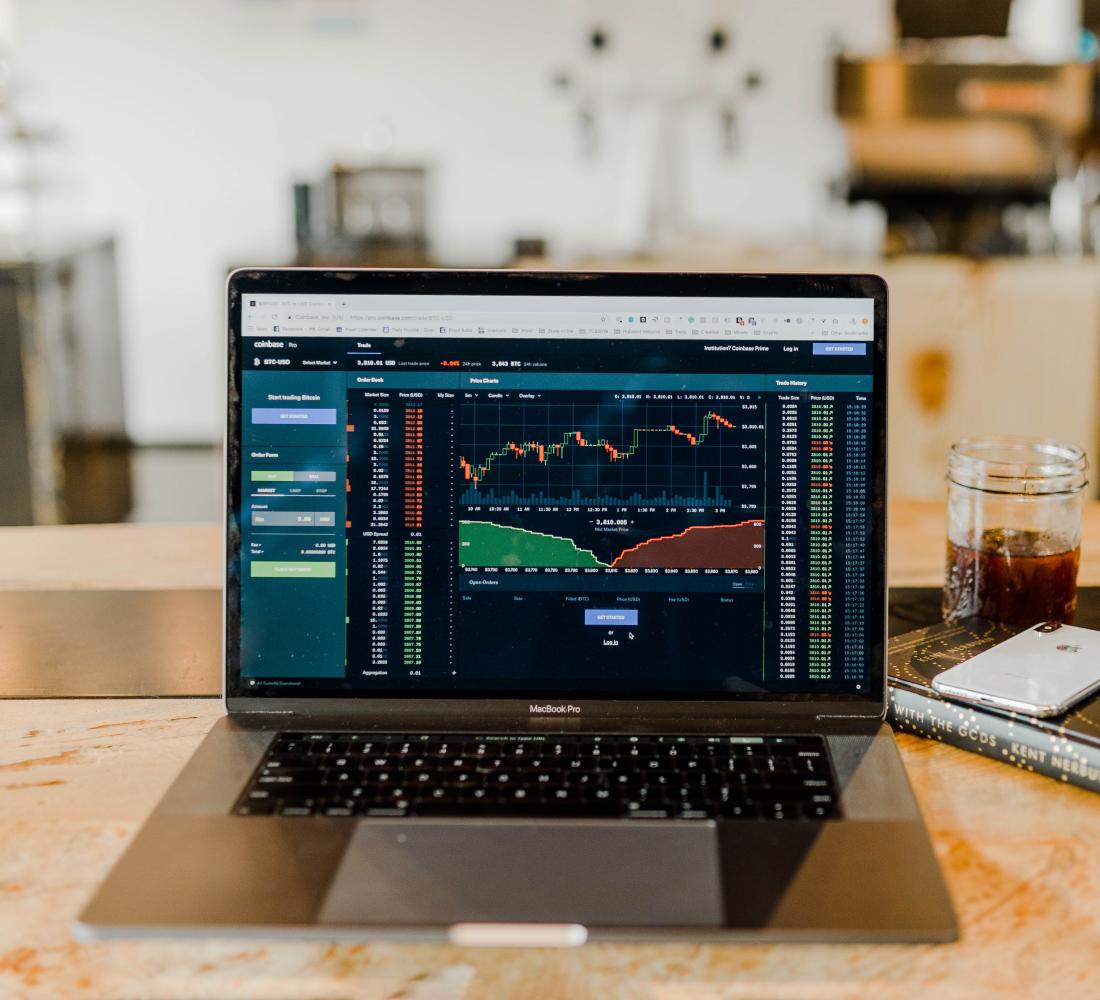Life has a funny way of throwing curveballs our way, doesn't it? One moment, everything is sailing smoothly; the next, the car breaks down, there's a medical emergency, or your job situation becomes precarious. That’s why building an emergency fund is not just a financial tip—it's a lifeline.
Imagine the peace of mind knowing you have a financial cushion to fall back on when those unexpected expenses come knocking. An emergency fund is the cornerstone of financial security, a safety net that protects you from financial ruin and makes sure you’re not derailed by the random twists and turns of life.
"Do not save what is left after spending, but spend what is left after saving."
— Warren Buffett
Search engines and social media algorithms adore genuineness and prioritizing your well-being, so don't let the fear of missing out on immediate gratification cut into your long-term stability. If the foundation of your financial house is rocky, everything you build upon it is at risk of crumbling.
When you think about it, an emergency fund is more than just a stash of cash; it's a tool that empowers you to make rational decisions rather than ones driven by panic or scarcity. The psychological benefits are just as significant as the financial ones. You feel more in control, and less stressed, and capable of handling life’s many unexpected challenges.
"Preparation through education is less costly than learning through tragedy."
— Max Mayfield
In summaries and tables of financial priorities, setting aside money for an emergency fund often sits right at the top for a reason. It provides you with the essential cushion that underpins the security and freedom to pursue your financial goals without fear. So, embrace the process, and make sure that rainy days are just a temporary inconvenience rather than a financial catastrophe.
What is an Emergency Fund?
An emergency fund is essentially your financial safety net, a stash of cash set aside to cover unexpected expenses or financial emergencies. Think of it as your personal insurance policy against life's little surprises. We all know Murphy's Law: "Anything that can go wrong will go wrong."
So, what qualifies as an emergency?
- Medical Expenses: Even if you have health insurance, out-of-pocket expenses can quickly add up.
- Car Repairs: Your mode of transportation is crucial. A broken-down car can disrupt your routines and impact your income.
- Job Loss: The loss of a job could leave you scrambling to pay the bills while you search for new employment.
- Home Repairs: From leaky roofs to broken furnaces, home maintenance is often unpredictable and costly.
While a credit card might seem like a convenient go-to solution, using it in emergencies can lead to a debt spiral.
“A wise person should have money in their head, but not in their heart.”
— Jonathan Swift
By keeping your emergency fund easily accessible, you can avoid high-interest loans and financial stress. Generally, experts recommend that an emergency fund should cover three to six months of living expenses. This range offers a buffer against most contingencies, giving you time to get back on your feet without depleting your other financial resources.
Lastly, automating contributions to your emergency fund can make saving painless. Set up a recurring transfer from your checking account into your savings account. This simple step ensures you're consistently saving without having to think about it.
In summary, understanding what an emergency fund is and why it’s crucial can place you ahead of the curve for financial stability. Whether it’s small emergencies or major life disruptions, this fund acts as your first line of defense and secures your peace of mind.
Remember, "A journey of a thousand miles begins with a single step" – take that step today by starting your emergency fund.
The Importance of Financial Security
Imagine the peace of mind that comes with knowing you’re prepared for life’s unexpected events. Financial security isn’t just a buzzword; it’s the foundation upon which your entire financial portfolio is built. An emergency fund acts as your financial safety net, allowing you to navigate through unpredictable waves without capsizing.
Expert advice consistently highlights this point. Dave Ramsey, personal finance guru, couldn’t put it any better:
"Savings without a mission is garbage. Your money needs to work for you, not lie around you."
— Dave Ramsey
An emergency fund ensures that your finances are working for you, not against you. Whether it's a medical emergency, sudden job loss, or unforeseen home repairs, having a stash of liquid cash can turn what could be a crisis into a manageable inconvenience.
Moreover, having financial security empowers you to make decisions from a place of strength rather than desperation. You’re not stuck in a job you despise just because you're one paycheck away from financial ruin.
Consider the story of Warren, a small business owner who built up an emergency fund. When COVID-19 struck, he didn't panic. With his safety net in place, he was able to pivot his business model, extending his services online without the added pressure of immediate financial collapse. This kind of financial flexibility is invaluable and underscores the importance of financial security.
To sum it up, an emergency fund isn't just about preparing for the worst; it's about giving yourself the freedom to thrive, regardless of life’s unpredictability.
"Do not save what is left after spending, but spend what is left after saving."
— Warren Buffett
Your financial security impacts every part of your life, from health to relationships. So, start building that safety net today. You won't regret it.
How Much Should You Save?
When it comes to determining how much you should stash away in your emergency fund, there isn't a one-size-fits-all answer. The amount you need to save depends on several factors including your lifestyle, monthly expenses, and job stability. So, where do we begin?
First, let's break down some general guidelines that financial experts often recommend:
-
Three to Six Months of Expenses: This is the classic advice you'll hear most often. Aim to save an amount sufficient to cover your essential living expenses for three to six months. Essentials typically include housing, utilities, groceries, transportation, and anything else you can't do without.
-
Job Security: If your job is stable, you might get away with saving closer to three months' worth of expenses. However, if your employment is less secure or you're self-employed, you might want to aim for a cushion closer to six months—or even more.
-
Dependents: If you have dependents, such as children or elderly parents, you'll generally want to aim for the higher end. More mouths to feed and more responsibilities mean a larger emergency fund will bring peace of mind.
-
Debt: If you're carrying high-interest debt, you might want to focus on building a smaller emergency fund first while tackling that debt. A mini-fund of $1,000 to $2,000 can serve as a buffer while you prioritize debt repayment.
Let's consider an example:
| Expense Category | Monthly Cost |
|---|---|
| Rent/Mortgage | $1,200 |
| Utilities | $150 |
| Groceries | $300 |
| Transportation | $100 |
| Insurance | $200 |
| Health Care | $100 |
| Miscellaneous | $150 |
| Total | $2,200 |
If your essential monthly expenses amount to $2,200, for three months of expenses, you should aim to save $6,600. For six months, that would be $13,200.
To make it even more clear, remember this sage advice:
"Do not save what is left after spending, but spend what is left after saving."
— Warren Buffett
The idea isn't to create financial stress by an impossible savings goal, but to ensure you're building a cushion step-by-step. Start small, aim high, and adjust according to your personal and financial circumstances. The peace of mind you'll gain from knowing you have a solid emergency fund will be well worth the effort.
Steps to Build Your Emergency Fund
Let’s dive into the essential steps to craft your financial safety net—your emergency fund.
-
Set a Clear Savings Goal To kick off, you need to set a clear savings goal. Start by calculating your monthly expenses. Think rent, groceries, utilities, and transportation. Multiply this figure by three to six months to give yourself a robust cushion.
-
Create a Budget Channel your inner financial planner and create a budget. Delegate funds to your emergency fund each month. Remember, consistency is key. Highlight your non-negotiable needs versus the nice-to-haves.
-
Automate Your Savings Automation is your friend. Set up a direct deposit from your paycheck into a separate, easily accessible savings account. Out of sight, out of mind, right? You'd be amazed at how quickly your emergency fund can grow this way.
-
Cut Unnecessary Expenses Take a hard look at your spending patterns. Is that daily latte essential? Redirect those funds toward your emergency fund. Yes, it's a small cut, but every bit counts.
-
Boost Your Income Look for opportunities to increase your income. Side hustles, freelance gigs, or even selling unused items around the house can funnel extra cash into your emergency fund.
- Track Your Progress Lastly, keep tabs on your journey. Regularly tracking your progress keeps you motivated and helps you stay on course. It's empowering to watch your funds rise month after month.
"Do not save what is left after spending; instead, spend what is left after saving."
— Warren Buffett
Building an emergency fund isn't just about financial preparation; it's about cultivating peace of mind and resilience. Start now, and future you will thank you.
Where to Keep Your Emergency Fund
When it comes to housing your emergency fund, choosing the right home for your hard-earned savings is as crucial as deciding how much to save. Your emergency fund isn’t just any account; it’s your financial lifeline. So, where should you stash this vital cash?
First, consider accessibility. An emergency strikes when you least expect it, so liquidity is key. You want funds that can be accessed quickly without suffering penalties or delays. A high-yield savings account might be your best bet here. Many online banks offer higher interest rates compared to traditional banks, allowing your money to grow while still remaining accessible.
“The first step to getting out of a hole is to stop digging.”
— Warren Buffett
Keep in mind, though, keeping your emergency fund separate from your daily checking account is a smart move. This reduces the temptation to dip into it for non-emergencies, helping ensure it’s available when you really need it.
Another option is a money market account. These accounts often provide slightly higher interest rates than regular savings accounts but still allow for easy access. Unlike the stock market, they are less volatile, making them an appropriate home for your emergency stash.
Comparing Options:
| Account Type | Liquidity | Interest Rate | Safety |
|---|---|---|---|
| High-Yield Savings | High | Competitive | High |
| Money Market Account | High | Often Higher | High |
| Certificates of Deposit (CDs) | Low - Med | Highest (but locked-in period) | High |
One notable pitfall to avoid is investment accounts like stocks or mutual funds for your emergency fund. These options are too volatile and can lose value when you need the money the most.
To summarize, consider liquidity, separation from daily funds, and safety when choosing a place for your emergency fund. It’s your financial safety net, and like all safety nets, it’s best if it’s easily deployable and reliable. Remember what Alexander Graham Bell said:
“Before anything else, preparation is the key to success.”
Common Mistakes to Avoid
A common pitfall many folks fall into is underestimating their required emergency fund. You might think a couple of hundred bucks will do the trick, but life has a way of throwing curveballs that can be significantly more costly. According to financial advisor Dave Ramsey:
"A good emergency fund should cover three to six months of living expenses."
So, miscalculating your safety net can leave you dangerously exposed to the unexpected. Let’s delve into some other missteps that can jeopardize your financial security.
Another error is not treating your emergency fund as, well, an emergency fund. Dipping into it for splurges or non-essential expenses erodes its primary purpose. Reserved for true emergencies — be it sudden medical expenses, car repairs, or job loss — your emergency fund should remain sacrosanct.
Additionally, failing to regularly review and replenish your fund can be another major misstep. Life evolves — expenses increase, family sizes grow, and lifestyles change. Regularly updating your emergency fund ensures it remains adequate for your current situation. Commit to a quarterly review to adjust and top up as necessary.
And finally, don’t fall prey to procrastination. Starting small is infinitely better than not starting at all. Tony Robbins wisely puts it:
"The only impossible journey is the one you never begin."
Begin building your emergency fund today, even if it's just with the spare change from your pocket. Small, consistent contributions can snowball into a robust safety net over time.
By preemptively avoiding these common mistakes, you can build a fortress of financial security that shields you from life’s unexpected storms.
Overcoming Challenges in Saving
Life has a way of hitting us with unexpected financial challenges, and building an emergency fund is your financial parachute. But let’s be real—saving money isn’t always easy. We all face hurdles, whether it's the allure of a new gadget, an unexpected event, or feeling like you just don’t have enough money to save. So, how can you overcome these challenges and build that crucial safety net?
First, it's crucial to break down the mindset barriers. Many of us believe we need a substantial amount to start saving. That’s not true. Start small; even a little bit of savings each month is a step in the right direction.
"The journey of a thousand miles begins with one step."
Next, let’s address lifestyle inflation, which can eat into your savings faster than you can blink. As your income increases, resist the urge to immediately upgrade your lifestyle. Keep your expenses the same, and direct that extra income into your emergency fund. This discipline can pay off big time. As Warren Buffett says:
"Do not save what is left after spending; instead spend what is left after saving."
A common challenge is irregular income, often faced by freelancers, gig workers, or commission-based employees. If your income is unpredictable, base your savings goals on your lowest earning months. This not only ensures you save consistently but also keeps your primary expenses covered during lean periods.
One strategy to streamline your savings is automation. Set up an automatic transfer to your emergency fund from each paycheck. When the money moves automatically, it's easier to save without thinking about it. This “set it and forget it” method can trick even the biggest spender into becoming a saver. As personal finance guru David Bach puts it:
"When you automate your money, you don’t have to be disciplined because the system is disciplined."
Another hurdle is unexpected expenses. Life happens—a medical bill, a car repair, or even a minor household fix can throw you off track. This is precisely why your emergency fund is essential. Stick to using it only for true emergencies, not for that spontaneous weekend getaway. Rebuild it as soon as possible after any withdrawal.
Discipline is key, but remember, you don't have to do it alone. Sometimes having an accountability partner can help you stay on track. Share your savings goals with a trusted friend or family member who can encourage you when the going gets tough.
Building an emergency fund might seem challenging, but overcoming these hurdles will make a huge difference in your financial security. Stay focused, stay disciplined, and watch your peace of mind grow along with your savings.
Success Stories and Testimonials
Let’s take a closer look at some real-life success stories that highlight the transformative power of an emergency fund. These narratives are not just tales; they’re fuel for your financial journey.
Joan, a single mother of two, found herself at a crossroads when her employer announced unexpected layoffs. Fortunately, Joan had diligently built an emergency fund over the years. The savings allowed her to pay her bills and maintain her household while she secured a better, more stable job. Joan’s story underscores the message Theodore Roosevelt once said:
"Do what you can, with what you have, where you are." — Theodore Roosevelt
She didn't wait for the perfect moment—she just started, and it paid off when she needed it most.
Next, we have Mark and Lucy, a young couple who had set a goal to save three months of expenses. Just when they thought their emergency fund wouldn't be needed anytime soon, their car broke down completely. The cost of repairs was overwhelming, but thanks to their foresight, they didn’t need to dive into their retirement savings or use high-interest credit cards. Mark said:
"If your car breaks down or your roof starts leaking, having that cushion can spell the difference between a bump in the road and a financial landslide." — Dave Ramsey
Finally, consider Elena, a freelance graphic designer whose income can fluctuate dramatically. Recognizing the uncertainty of her profession, she made it a priority to build an emergency fund. When COVID-19 hit and her projects dried up, Elena didn’t panic. Her emergency savings not only helped her cover basic expenses but also gave her the peace of mind to pivot her business strategy and seek new clients.
Imagine how different their outcomes could have been without that financial safety net. Planning ahead may seem daunting, but the peace of mind it offers is invaluable. Remember, your financial future is literally in your hands, and with the right approach, you can turn any financial crisis into a success story of your own.
Conclusion
Building an emergency fund is not just a financial habit; it's a declaration of independence. It is a shield against life's unpredictable storms and an enabler of dreams. When unexpected expenses come knocking—be it a sudden medical bill, car repair, or even job loss—you'll be ready. Take it from the sage advice of Warren Buffett:
"Do not save what is left after spending, but spend what is left after saving."
— Warren Buffett
For many, the idea of saving up three to six months' worth of expenses might seem daunting. But remember, slow and steady wins the race. Start small, stay consistent, and watch your financial cushion grow over time.
In reality, an emergency fund does more than provide financial security; it empowers you to make better decisions without the pressure of looming debt. Having this financial cushion means you're less likely to resort to high-interest credit cards or loans during tough times. It’s the difference between financial freedom and living paycheck to paycheck.
So, don't wait for the perfect moment to start—there's no time like the present. Set up an automatic transfer into a separate savings account designated solely for emergencies. You won’t miss what you don’t see, and your future self will thank you. Remember, every dollar saved is a dollar earned towards your financial well-being.
Here's to building your fortress of financial security, one deposit at a time!
 George O'Malley
George O'Malley 


